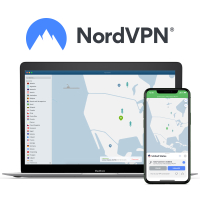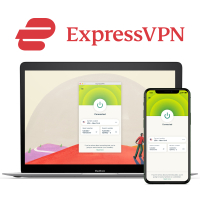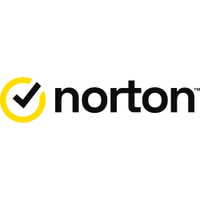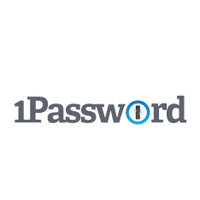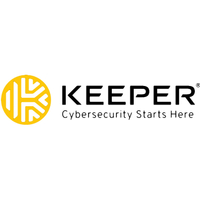How to protect your new laptop
How to properly protect your new Amazon Prime Day purchase

1. Top 3 best VPNs
2. How to choose a VPN
3. How we test VPNs
4. VPN FAQs
5. Top 3 best antivirus
6. How to choose antivirus software
7. How we test antivirus
8. Antivirus FAQs
9. Top 3 best password managers
10. How to choose a password manager
11. How we test password managers
12. Password managers FAQs
If you've managed to snag yourself an incredible Prime Day deal on a new laptop then first of all well done, but there are just a few more things to consider before you get up and running. You want to make sure that shiny new laptop stays fast and secure right? Well, make sure to follow these essential steps.
The best way to ensure all-around security is to use a combination of the best VPN, the best antivirus, and the best password manager. Together, they'll mask your IP address, help you access region-restricted content, delete malware files before they can harm your system, and protect your online accounts with strong passwords. It's worth noting that there are quite a few bundled solutions that include all three privacy solutions in a single plan.
Our experts at Tom's Guide use these products day in and day out and have put all of their experience into preparing this brief guide for you, highlighting the top 3 tools in each of those categories.
The best VPN in 2025
A VPN will protect your personal information and browsing history from leaking while you’re operating the internet on your new laptop. Using the best VPN, you can change your location and access geo-blocked content on any streaming platform of your choice – plus it’ll keep DDoS attacks and ISP throttling at bay when you’re leveraging the graphics power of your new portable workstation.
Here are the top three choices on the market right now:
1. NordVPN: the best overall VPN
NordVPN offers a complete security suite packed with extra cyber security tools like built-in antivirus, malware protection, and ad-blocking. It tops the charts as the best Netflix VPN, unblocking everything I threw at it in our testing – and it’s also one of the fastest VPNs in the industry right now. There’s even a 30-day money-back guarantee, so you can try before you commit.
2. ExpressVPN: the best premium VPN
ExpressVPN is more expensive than its rivals, but still one of the best VPNs around. That's thanks to a wide network of servers, easy-to-use apps (with a one-click connection), blazing speeds, and tons of support options for help on the fly. It offers rock-solid security features, and its unblocking capabilities are just as commendable. It also has a generous 30-day money-back guarantee,
3. Surfshark: the best cheap VPN on the market
Surfshark is the best budget VPN, and despite that, it has enough power under its hood to give premium providers a run for their money, in fact it leads the pack for the fastest VPN around. On top of that, you get unlimited simultaneous connections and some very handy data protection tools. Try it out risk-free with a 30-day money-back guarantee.
How to pick a VPN to secure your laptop
Here are the most important factors to consider when out shopping for a VPN for your laptop:
Security: Needless to say, this is the most crucial aspect. The VPN you choose must come with essentials like a kill switch and a strict no-logging policy. However, not all VPNs are created equal, so you’ll have to look around to find the one best suited for your use case.
For example, if you want to torrent, you’ll look for a torrenting VPN with P2P support on as many servers as possible. Similarly, if your memo is 360-degree security, you’ll consider opting for services like NordVPN and Surfshark that offer antivirus, cloud storage, and data breach tracking all in one subscription.
Server locations: Look for a VPN with a vast network of servers around the world so that you can connect from anywhere. If you want to access foreign content, the VPN you choose must have servers (physical or virtual) in that country.
Price: Your chosen VPN provider should fall within your budget, although we recommend prioritizing functionality over price, at least at the start of the selection process. Still, if cost is a major concern for you, our guide to the best cheap VPNs will be your friend. There even some solid free options, but their features are more limited.
Customer support: As with any tech service, you can always run into an issue while operating a VPN, which is why you must opt for a service with friendly 24/7 customer support available via multiple channels, like email, live chat, and phone. And a rich catalog of helpful guides is just as important for quick fixes.
Other core aspects include looking at a VPN’s unblocking capabilities - whether it goes past the streaming services of your choice, its compatibility with the operating system you intend to run it on, and the number of simultaneous connections on offer.
How we test VPNs
Our dedicated team of in-house experts thoroughly tests the top VPNs every six months, evaluating their claimed features or changes in policy. We try to anonymously sign up for the services and install them on a range of operating systems to check compatibility and whether the features work equally well on all device types.
Next up, we try and break the kill switch on the Windows app, ensuring that the provider won’t leak or falter in real-world scenarios. We also score the VPNs on aesthetics and ease of use to make sure our reviews are as thorough as they can be – and that they don’t miss out on anything that may be important to a user.
We then verify the advertised speed of a provider via a fresh round of testing every morning on a 1Gbps line using a number of tools, including the Ookla SpeedTest website and CLI, nPerf, Netflix's Fast, and others. We take the average (median) of each tool's results to generate an accurate range of speeds.
We also throw multiple streaming sites, including Netflix, Amazon Prime, and Disney+, at it and note down its unblocking prowess. We repeat this process with the biggest providers every month to stay on top of any changes or updates.
Using a VPN FAQs
Is it legal to use a VPN?
Using a VPN to keep yourself safe on the internet is perfectly within the law. However, when you use it to hide illegal activity or trespass a streaming service’s Ts&Cs, that's when you open yourself up to fines and other punishment.
Countries like China, Russia, and the UAE have imposed several restrictions on the use of VPNs, and it's best you read what you may or may not be permitted to use a VPN for in these countries.
Are VPNs easy to use?
Top VPN services are all generally very easy to set up and use, with all options clearly laid out. However, if you're new to VPNs, I recommend using ExpressVPN as it comes with an intuitive one-click connect function – so you connect once and you're always protected. Also, its proprietary Lightway protocol automatically zeroes in on the best server and encryption for your needs.
The best antivirus in 2025
The best antivirus software can keep your laptop free from malware, viruses, ransomware, and other cyber threats. Although Mac devices are incredibly secure from the get-go, cyber criminals are getting smarter by the day, and their deployed tactics are being tailor-made to target Mac devices.
If you're a Windows owner, Microsoft’s Windows Defender may be enough to keep your laptop free from basic threats, but a dedicated antivirus program offers a much more robust solution, especially as antivirus often comes bundled with password managers, VPNs and parental controls.
On there note, here are our top three recommendations:
1. Norton: the best antivirus software package this year
Norton is a value-packed powerhouse that comes bundled with a password manager, unlimited VPN data, online storage, and even parental controls. It's admittedly not the cheapest of the lot, but with access to LifeLock identity theft protection and a spam call blocker, there's plenty of value on offer.
Make the most of its 14-day free trial and 60-day money-back guarantee and see how it compares to Bitdefender and McAfee.
2. Bitdefender: fast and accurate antivirus software with tons of extras
Bitdefender is a lightning-fast antivirus program offering robust cleanup of both new and unknown malware and all of that without taking up a huge amount of resources on your laptop or mobile phone.
Extras include a VPN, safe banking tools, and a firewall, and there’s a generous 30-day money-back guarantee so that you can try it out without risking a penny.
3. McAfee: the best antivirus for big families
McAfee Antivirus Plus and Total Protection Plus are a delight for big families, as they come with the ability to cover up to 10 devices alongside rock-solid security features, like a password manager and ransomware rollback, and 24/7 tech support for help on the fly.
If you'd also like unlimited VPN service, opt for its Total Protection Ultimate plan.
How to pick an antivirus to secure your laptop
First and foremost would be to choose an antivirus with a high malware-detection rate; some of the best options in the industry include Bitdefender, Kaspersky Lab, Norton, and Trend Micro. Ideally, the service you choose should stop more than 95 percent of malware and shouldn't come with a high rate of false positives.
The kind of security you should choose would depend on your particular use case and expertise, and this will also help you avoid unnecessary costs.
For example, if you're tech-savvy and know a thing or two about operating the internet securely, a budget antivirus with basic features will do the job for you.
However, if you're looking to rely on your chosen antivirus software heavily – or you're picking one out for your kids, an all-purpose security toolkit that includes password managers, identity theft protection, backup software, and more may be a better option.
If you need antivirus protection for all of the devices in your house, opt for bundles that cover multiple devices and device types in a single subscription. Our favorites include McAfee LiveSafe and Bitdefender Family Pack, which both protect an unlimited number of devices. Check out the other options in our list of the best internet security suites.
Ease of use is another important consideration. You can either go for a plug-and-play tool like Trend Micro that lets you scan right from the home screen or a more customizable antivirus like Avast. Irrespective of what you choose, it should be a tool that doesn't slow down your system – whether that's in the background or during running scans.
How we test antivirus software
Our testing process begins by ascertaining an antivirus’s performance and its impact on the system. For this, we take a Lenovo ThinkPad T470 with a 2.5GHz Core i5-7200U processor, 8GB of RAM, and 256GB of solid-state storage containing 43.3GB of files and run a custom-made Excel test that measures the time taken by the device to sort through a database of 20,000 names and addresses.
The longer it takes the processor to complete the test with a program running in the background, the heavier the antivirus solution’s impact on the system.
We also note how long it takes to install the antivirus and whether its mere installation leads to any increase in the benchmark time of our Excel-based test. We then compare the time taken by various antivirus software to perform both full and quick scans.
We don’t stop after a single scan – at least three or more scans of each of those categories to chalk out results that are accurate and eliminate any anomalies.
For malware detection scores, we rely on three independent testing labs: AV-Comparatives in Austria, AV-TEST in Germany, and SE Labs in England, all of which throw thousands of pieces of malware, including hundreds of new ones, at each major antivirus brand to judge its efficacy.
In addition to trying out a program’s app to understand its ability to show notifications and roll back ransomware changes, we also test other tools and utilities that come bundled with antivirus protection. These may include a VPN, a password manager, parental controls, and file encryption and shredding.
Using antivirus FAQs
What does antivirus do?
The best antivirus software offers real-time defense against cyber security threats, identifying and removing malware at lightning-fast speeds and preventing them from affecting your device. It not only prevents your data from being stolen but can offer identity protection, meaning that even if your data is breached, your personal details are secure. You'll also be protected against phishing attacks, which see attackers attempt to trick you into sharing your data.
Is free antivirus enough?
Free antivirus solutions like Windows Defender are more than capable of protecting you from basic malware files – plus it'll also give you a few extra cyber security tools for added protection. However, free offerings are often plagued with ads and popups.
If you believe that privacy is priceless – and it is! – you should go for an antivirus program that offers a complete full range of security tools, such as parental controls, a password manager, and identity theft protection, all included in a single subscription.
The best password manager in 2025
A password manager is an essential tool for your laptop and other devices if you want to improve your productivity and, of course, your security. The best password managers not only simplify storing passwords and personal details to allow you to fill online forms at blazing speeds, but they also offer strong password generators, anti-phishing features, data recovery, and robust protection from identity theft.
Of the dozens and hundreds of password managers on the market, these are our top three:
1. 1Password: the best password manager overall
1Password is the best password manager in our testing, offering easy-to-use apps across all device types. Great sharing features mean that it's also ideal for families, and there’s no dearth of security features, either, thanks to “masked” email addresses and keylogging and phishing protection.
It knocks it out of the park for users who are out and about with its Travel Mode that deletes sensitive data from your devices so that it is inaccessible to anyone trying to look at or steal it.
2. Dashlane: the best password manager interface
Dashlane offers intuitive interfaces across the board, especially on its desktop app. It's easy to use, offers a bulk password changer, and valuable extras like dark web monitoring and unlimited VPN service.
Although it's admittedly pricier than its rivals, there's a free tier available so you can enjoy the service without breaking the bank.
3. Keeper: the best password manager for security
Keeper offers top-notch security, allowing you to use biometrics to access your passwords on your desktop.
There are lots of templates to fill in your personal information, and the free tier with everything except cross-device syncing is the cherry on top.
How to choose a password manager to secure your laptop
If you're looking through the options on our list of the best password managers, you can rest assured that all of them perform the basic functions excellently well, so the real consideration when choosing the best password manager for your needs becomes the extra features on offer.
Would you like your password manager to also store your credit card numbers, personal details, and other frequently used information to allow you to fill out online forms quickly? Maybe you're after a password manager like Keeper or Dashlane that provides extra security in the form of data breach alerts?
One of the most important factors to consider is the storage options offered by a password manager. Do you want your information to be stored locally on your device or on the cloud or on someone else's servers?
It's worth noting that cloud-based services are generally more convenient and flexible, but for those who want total control over their passwords, local storage of passwords is a far better option.
Multi-device compatibility cannot be overlooked, either. Do you want your password management solution to cover both Android and iOS devices? In that case, opt for a password manager that syncs your account on multiple devices in real time.
Although you don't have to be a techie to use a password manager, make sure its apps are simple, with every option clearly laid out and easy to understand. At the same time, you shouldn't compromise with customizability, either – such as the option to create multiple folders and sort them any way you prefer.
Last but not least, the price of the password manager is an important factor as well. Although privacy has no price, you wouldn't want it to cost you a fortune, especially when there are budget options like Bitdefender and password managers with excellent free tiers like Bitwarden.
How we test password managers
As is the case with any tech product we review, our experts put the 30-odd top password managers under the scanner to test the accuracy of their claims, ease of use, design, and how they compare with other products on the market.
We try out the program’s mobile apps, desktop apps, and even browser extensions on a variety of devices, including a Samsung Note 20 smartphone, a ThinkPad T470 running Windows 10, and an iPad Pro. The browsers we used include Microsoft Edge, Google Chrome, and Mozilla Firefox.
We then put each password manager’s support options to the test and strive to find out whether its help agents are prompt, friendly, and able to come up with accurate solutions to whatever questions we throw at them.
After loading up the password managers with our login credentials to multiple sites like Facebook, Twitter, and LinkedIn, we test their autofill accuracy and speed – in addition to stress-testing them in all kinds of scenarios.
For more on our testing procedures, check out our how we test page for Tom's Guide.
Password managers FAQs
Do password managers work with apps?
The best password managers offer compatible mobile (Android and iOS) and desktop (Windows, Mac, and even Linux) apps, and they're almost always cross-platform, meaning you can use different apps across different devices, and any data you store in one of them will be easily accessible on other devices.
Most smartphones combine password managers with biometrics, passcodes, or face IDs for an extra layer of security, and not only apps, but they can also work in popular browsers, such as Microsoft Edge, Google Chrome, and Safari – thanks to intuitive browser extensions.
Are password managers safe?
Short answer – yes.
Password managers are very secure, as they leverage zero-knowledge architecture, complex algorithms to encrypt and decrypt passwords, biometric login, and multi-factor authentication.
However, despite their use of cutting-edge technology, password managers are not absolutely foolproof, so it's always a good idea to pair them up with healthy cyber security practices. These include avoiding using them on public Wi-Fi, choosing a strong master password, and refraining from sharing personal details over compromisable communications channels.
Sign up to get the BEST of Tom's Guide direct to your inbox.
Get instant access to breaking news, the hottest reviews, great deals and helpful tips.

Olivia joined Tom's Guide in October 2023 as part of the core Tech Software team, and is currently VPN Commissioning Editor. She regularly uses VPNs to make sure they deliver what they promise, and specializes in testing VPNs with streaming sites.
- Krishi ChowdharyContributor
- Andy Sansom
